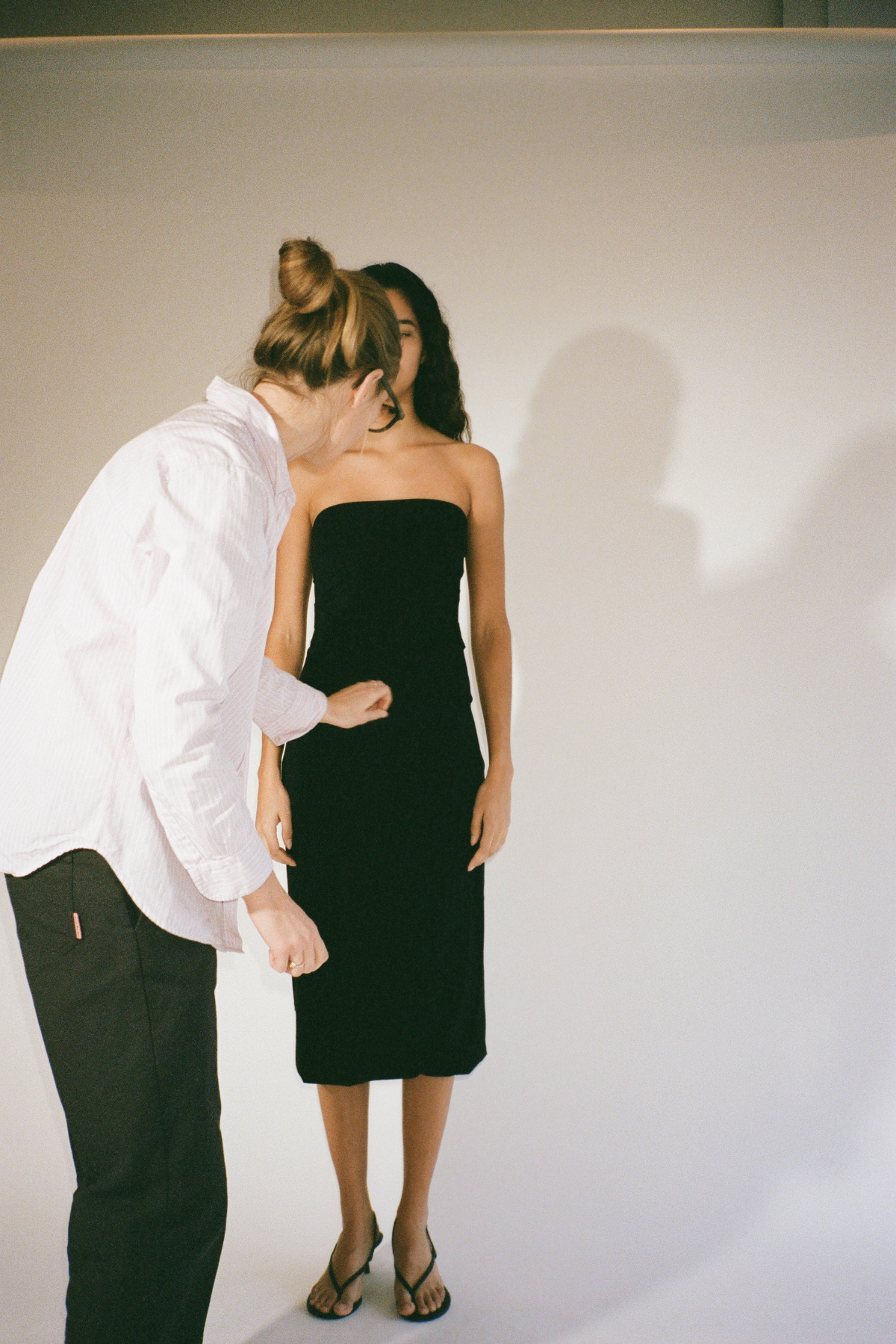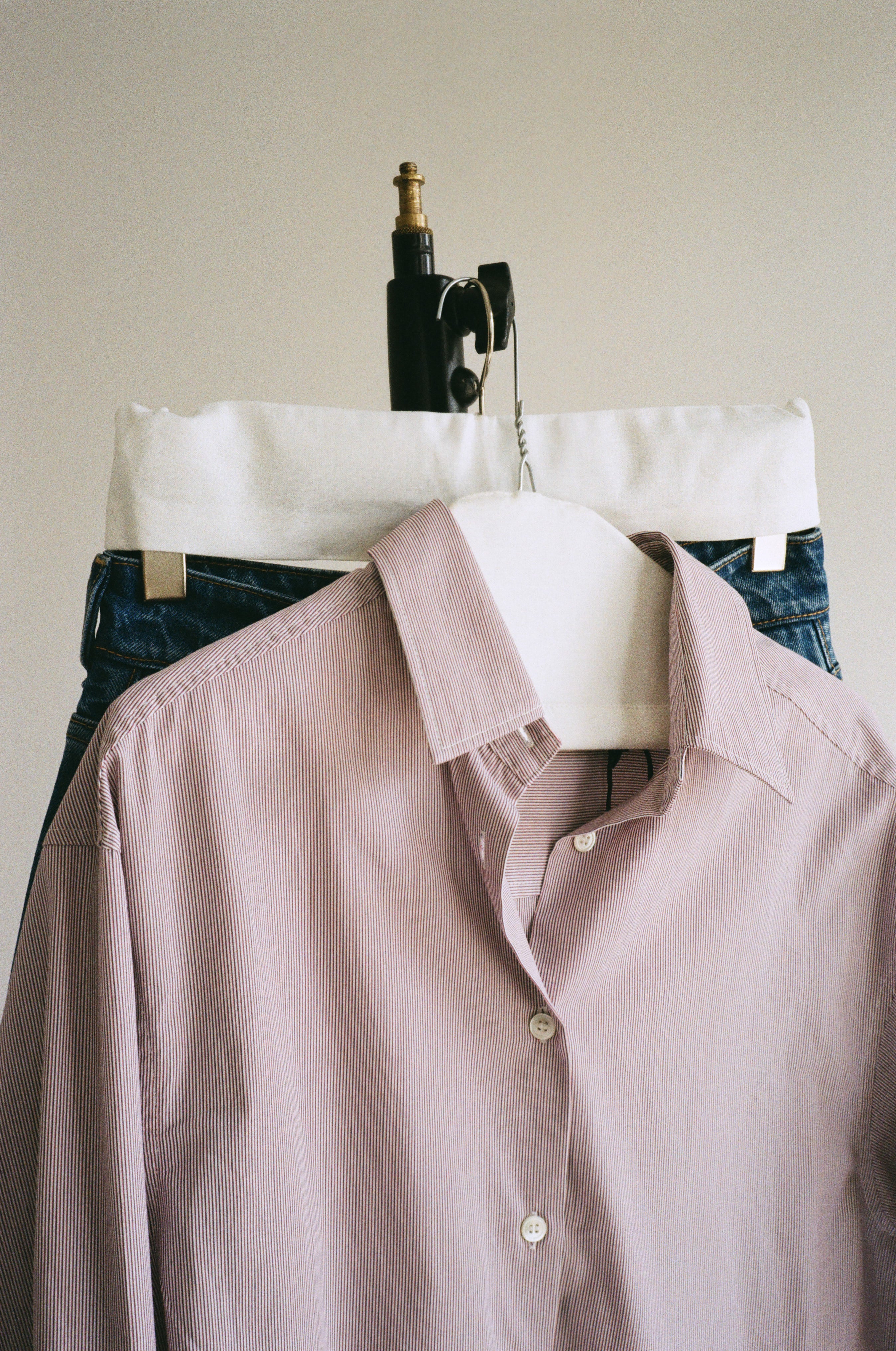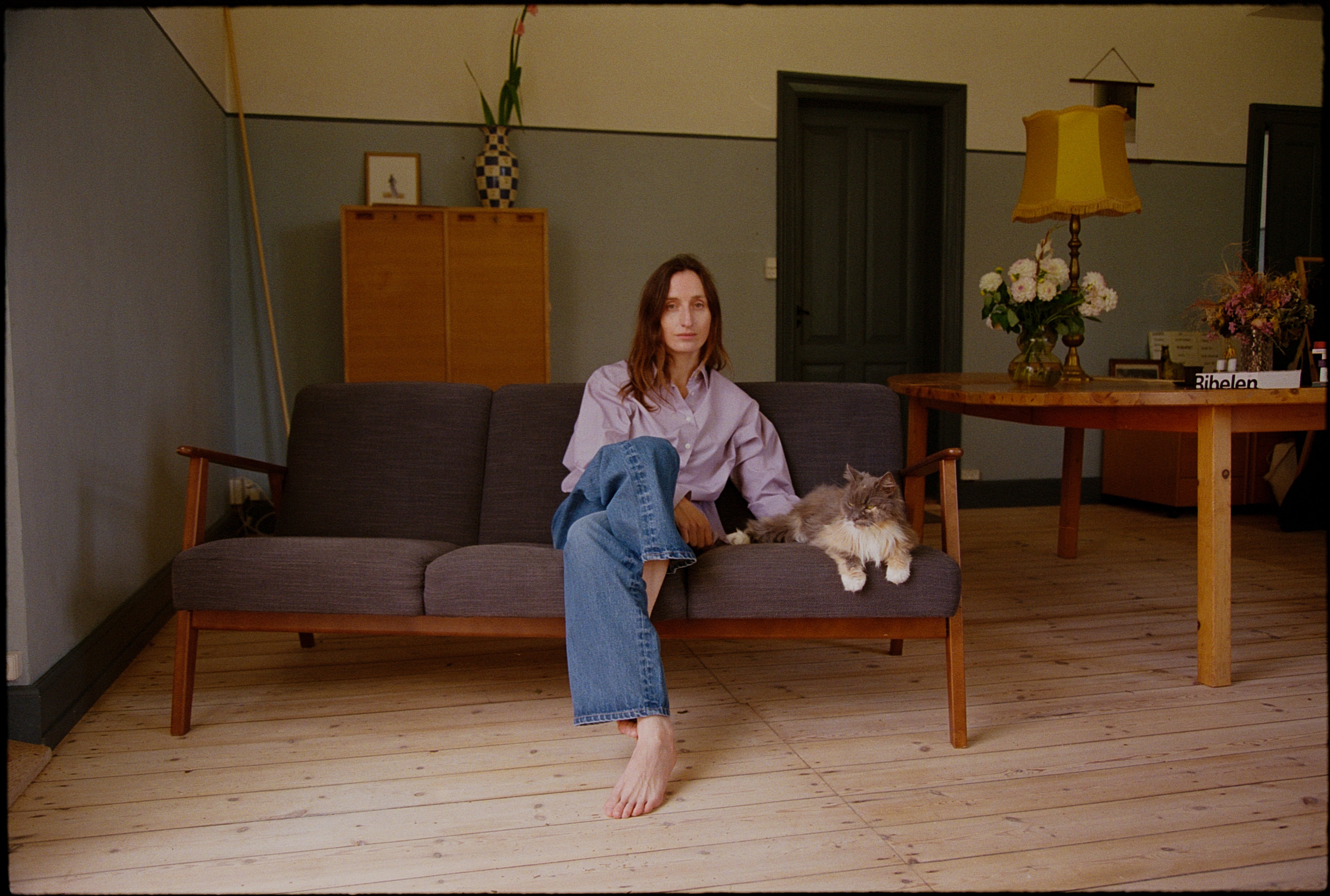Conversation with author Amalie Langballe
Amalie Langballe is a Danish award-winning author of both fiction and non-fiction. She is also a widely-published journalist, including regularly in Weekendavisen. Her most recent novel, Elskende (Lovers, red.) captured the attention of Frederikke, who couldn’t put it down once the first pages were turned. The novel takes place in Medieval times and centers around a barren nobel woman. As a result, her husband sends her away to a brothel. The novel is remarkable, and rightly so appeared to become the ‘novel of the summer’ in Denmark.
We had the immense pleasure of being invite inside Amalie’s countryside home for an exchange on the drivers of her authorship, being free from pressure of expectations and the creative project of her dreams. Read below, where Amalie also shares her three favourite books that will now be on our fall readlist.
Photos: Amanda Bødker
Amalie Langballe wears GRAUMANN AW25 throughout.
Your writing is raw and honest. Where do you think it comes from?
I’ve always been very conscious of the fact that time is precious, and I don’t want to waste anybody’s time. I think in some sense that is what you do if you are not honest with your reader. And of course honesty in fiction is not about getting the facts straight but about something much more difficult.
Can you tell about your process when you are writing?
I always try to write what I don’t want anyone to know. When I sense a reluctance inside myself I try to investigate that reluctance and cast a light on it. The rest of my process is pure chaos controlled by deadlines: I don’t have any routines or golden hours or anything like that. I just have this urge to go to uncomfortable places inside myself – and a deadline.
Your most recent novel, elskende (elskende, red.) explores themes such as sex and power. Have you had realisations during the writing process or after publishing?
I’ve been surprised by how many assume that elskende has nothing to do with my life. Whereas my first novel, forsvindingsnumre, was widely read as way too autobiographical, it’s been the other way around with elskende: people tend to assume it has nothing to do with my life at all. To me they have the exact same amount of me in them, but perhaps I’ve just gotten better at hiding in plain sight, haha.
Is it important for you to push boundaries when you write or is it even a conscious consideration?
A friend of mine once said that I was good at provocation because I was unaware of when I did it, and I think same goes for boundaries: If that is your goal you will probably not succeed or you will succeed in a tiresome way.
You have a special love for cats and humour. What can we learn from cats?
Both my cats have very clear boundaries and I really admire that.
What are your 3 favorite books?
Infinite Jest by David Foster Wallace, Wuthering Heights by Emily Brontë and Middlemarch by George Eliot
If you had complete free reigns (financial, publishing wise etc.), what creative project would you dive head into?
I have this vision of a “dekologi” (a ten-part book series) about my elementary school class where each book covers a decade. So that would be a series with 22 protagonists. Or 21, actually, since I would write myself out of the equation.
You've been compared to great authors like Karen Blixen. How do you cope with the pressure of expectation, if you feel any at all?
I was very happy to be compared with Karen Blixen but only because my mother used to be compared to her by my classmates – though not because of any writing but because of her looks. She was very petite like Karen Blixen and used to wear turbans (generally she was a bit more dressed up than the other mothers) so my classmates picked up on a sort of shallow resemblance. But to me the similarities were more profound: a certain, intense joie de vivre.
So as you can probably tell, I don’t really feel any pressure to live up to anybody’s expectations. It was never my big dream to become an author, it just sort of happened (not the writing of books, that part is hard, but the offer from a publicist came without me asking for it). I think the fact that I’m sort of an accidental writer has freed me in many ways. Writing to me is far from joyful but it does feel very private in the sense that I am the one I want to surprise or impress or challenge.
Apart from writing, are you practicing in or exploring other mediums?
I wish I was but I’m only really good at writing. It always makes me feel very vulnerable when I realize that. I wish I had another craft, like cooking or coding.
What does courage mean to you?
Oh, I never feel courageous myself but anytime somewhere does anything where the chances of success are low, I would call it courage. It can be anything from asking someone out on a date to moving abroad.
What is your perspective on being a female contemporary writer in Denmark?
When I got my first book contract at the age of 25 I came from journalism where I definitely felt that it was a challenge to be a young female. But I’ve never felt that way in the publishing industry: Maybe because most the most avid readers in this country are women I’ve always had the feeling that there was an appetite for my writing.

















